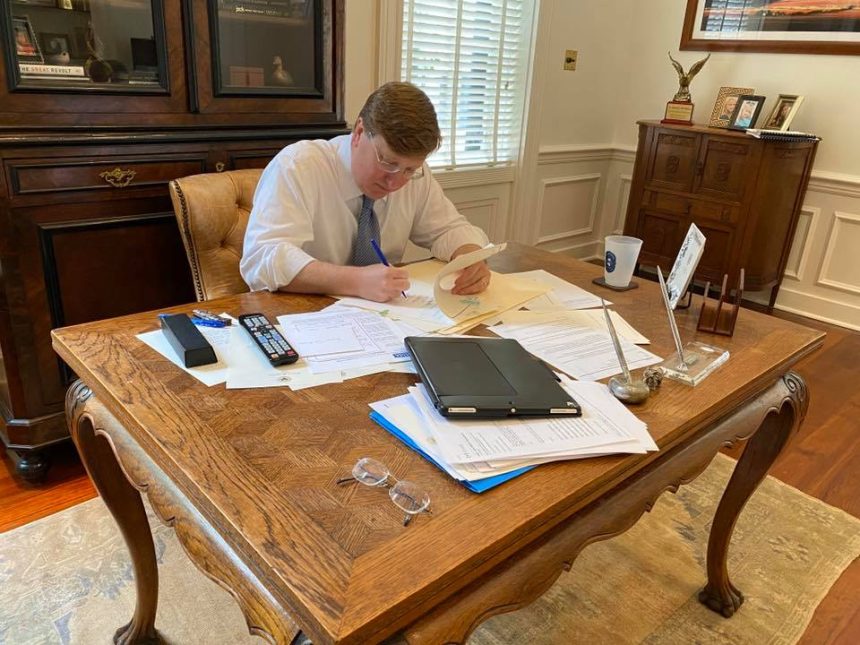While lawmakers left the capitol prior to Easter Sunday, the final deadline of the 2021 legislative session in Mississippi has officially passed as Governor Tate Reeves had until midnight to either sign or veto the remaining bills on his desk.
Thursday, he signed a closely-watched criminal justice reform bill to expand parole eligibility in Mississippi, and chose to veto one bill in its entirety—SB 2624—and line-item veto two other bills—appropriations bills for the Department of Transportation & the Department of Finance & Administration.

As explained by the governor in his veto message, the vetoed Senate bill sought to create a pilot program within the Mississippi Real Estate Commission that would allow persons charged with a violation of Commission rules to “bypass the Commission entirely and elect to have an administrative hearing officer (designated by the Attorney General) conduct the hearing and render a final decision on the charges.” He went on to say the bill does offer some positive changes and encouraged lawmakers to amend the legislation ahead of the 2022 session.
Governor Reeves line-item vetoed a portion of the appropriations bill for MDOT which would have allocated $4.5 million for the costs associated with an expansion project for a 4-lane portion of HWY 12 from the city of Durant to Kosciusko.
The items vetoed in the Department of Finance & Administration bill include:
- $500,000 allocation for the city of Greenville for downtown park improvements
- $50,000 for the city of Scooba for sports and athletic field improvements
- $50,000 for the town of Mathison to repair and renovate the town’s baseball park and other facilities.
Last year, line-item vetoes were at the center of a lawsuit filed against the governor by House leadership. The State Supreme Court eventually ruled in the governor’s favor.
During a conversation with SuperTalk Mississippi earlier this week, the governor alluded to the vetoes while also stating that he had chosen not to sign several other bills—including the Medicaid tech bill. Bills that do not get signed still become law.
“A veto by a governor, in my mind, should be left to things that are of such importance that it is a battle worth fighting,’ he said. “If I were one of 122 members in the House, I would’ve voted against a lot of this stuff because I don’t know that it’s necessarily the right policy, but the question becomes, does it reach that threshold wherein it requires a veto and then an override fight?”







